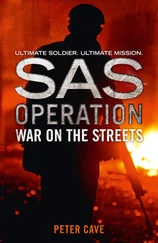“You sunk it?”
“Blew it to bits.”
“And when you returned to Norfolk, you got thrown into a meat grinder.”
“You could say that. The Navy said that I had disobeyed orders, violated the rules of engagement, hazarded my ship. They even threw in a few other things while they were at it.”
“But you saved the lives of those SEALs. Didn’t that mean anything?”
“It did to the SEALs but not to Admiral Ellsworth. He was ready to put me against the wall when Frank Drummond stepped in.”
“And now you’re their garbage man,” Alex said.
Paul Friedman, running late from his meeting at State, took a seat by the president’s desk in the Oval Office. The president looked at his national security advisor over the tops of half-glasses and said, “What’d the Russian ambassador say, Paul?”
“In a word, nyet.”
The president removed the glasses and tossed them on his desk. “You were right, Karl. The Russians are going to play tough on this one.”
“Did Zamorin say anything else,” Radford asked Friedman, “or was he his usual inscrutable self?”
“No, sir, he was quite animated,” Friedman said, speaking to the president. “Despite your entreaty that we be allowed to hunt down the K-363, the Russians have said no. They still reserve the right to do it themselves.”
“Idiots,” Radford said.
“And they absolutely refuse to rescind their recall order to the K-480,” Friedman said, adding, “and we won’t change their minds.”
“Can those Norwegian intercepts and satellite images that you have be trusted, Karl?” the president asked.
“Yes, sir. That’s why we should get something in the air over the Norwegian Sea. We’ve got P-3Cs we can deploy from Iceland and Spain. I’ve talked to Gordon, and he and Webster can have something on the way, today, if we say so. We ought to get an ASW group into the Skagerrak to plug that hole. Also, Ellsworth may be able to move a couple of his SSNs into the area around Norway and Sweden.”
“If we did that, Karl, it would upset the Russians,” Friedman said.
“Paul, we’re talking international waters,” Radford protested.
Friedman, looking to the president, said, “Sir, if we bring a cordon down on that area, the Russians will explode.”
“So, what are we supposed to do, Paul?” Radford said. “Just stand by and watch the Russians capture Zakayev and make him talk? Think what that would do to the summit if the Russians threw him in our faces. With all due respect, Mr. President, I still think that your decision not to cancel the summit is ill advised. Your safety is of paramount concern and until we can find and eliminate Zakayev, I’m damned uncomfortable with the situation we have.”
“I appreciate your concern, Karl. But you're a tad behind the curve. The decision's been made and Zakayev or no Zakayev, I leave tomorrow. The issue is closed. As for Scott, you and Admiral Ellsworth said he has good instincts. You still think he can find Zakayev?”
“Yes to both questions. He does have good instincts, which sometimes get him in trouble,” said Radford. “But Ellsworth believes that with a little help from us he can do it alone. And the Russians won’t know what we’re up to.”
“You know Zakayev, Karl. You’ve worked with him, supported him in Afghanistan and in Chechnya. What kind of adversary is he?”
“He’s very careful. Plans every move with care. But he’s also ruthless and willing to take risks. But then, so is Scott.”
“Meaning?”
“If Scott thought there was even a fifty-fifty chance that he could nail Zakayev, he’d go after him if we ordered him to.”
Friedman said, “What are his chances of finding and killing the K-363?”
“Less than fifty-fifty.”
“Then the odds are stacked against him from the start,” the president said.
Radford nodded. “That’s as good as it gets when it’s sub versus sub.”
“Where is the K-480 now, Karl?”
“A tick north of Gamvik, Norway.”
“Can we talk to Scott without the Russians knowing it?”
“Yes, sir. Well, I take that back: They’ll know if we send something via ELF and burst transmission, but won’t be able to read what we send.”
“Can we read the Russians' burst traffic to the K-480?”
“Some but not all. For instance, we think they’ve been retransmitting their recall order every hour on the hour but Scott hasn't responded, which has the Russians in a snit. And until we tell him to, he won’t budge. The Russians, I suspect, know he’s deliberately delayed his response until he gets orders from us.”
“Zamorin complained about that,” Friedman said. “He accused us of telling Scott to ignore their communications.”
“Let him,” the president said. “What about this fellow Botkin, the K-480’s skipper? Isn't he subject to the same recall order?”
“Yes, sir, technically he is. But Scott is Botkin's CO and can therefore override him.”
“I want to be absolutely clear on this point: There is no question Scott is in command of that sub.”
“Sir, technically he’s not in command of the sub, Botkin is. But Scott is the senior commander of the operation to find the K-363. Botkin, though he's the K-480’s skipper, is Scott’s subordinate.”
“Which means Botkin must follow Scott’s orders.”
“His operational orders, yes, sir. If I may ask, where is this going?”
The president put up a hand. “Those Norwegian intercepts. What are they telling us?”
Radford retrieved copies from his briefing folder. “It’s hard to say. For sure they had contact with something on SOSUS—we picked up their fleet bulletin and unit alerts—but there’s no way we can confirm it was the K-363."
The president rose from his chair and with arms folded, cupped his chin in a fist. “Use your crystal ball, Karl. Could that Norwegian SOSUS contact and the satellite images of wake scarring have been from the K-363?”
“I know what you want me to say, Mr. President: that it was the K-363 heading south down the coast of Norway. But I don't know if it was. There are too many variables and too many unknowns. For instance—”
The president waved that away. “Karl, cut the bull shit. Yes or no?”
“Well, I suppose it could have been the K-363.”
“Could have been…?”
Radford exchanged looks with Friedman. The national security advisor nodded almost imperceptibly. “What other nation’s submarines arc in that area?” the president said.
“None that we know of, sir.”
“Then it had to be the K-363, right?”
Radford hesitated. “Yes, sir, in all likelihood it was.” He was about to say more, but the president cut him off with another question.
“Where’s he heading to?”
Again Radford hesitated before saying. “Based on what we know, I'd say the Baltic. It's the only way to reach St. Petersburg by sea.”
The president returned to his desk and pointed a finger at Radford. “In that case I want you to send a message to Scott.”
Вotkin was adamant. “I cannot obey this order, Captain Scott. I am Russian naval officer, not American. I only obey Russian Navy orders.”
Everyone in the CCP, including Alex and Yuri Abakov, watched the scene unfold. Botkin’s young starpom, caught in the middle, still held the decrypted message from Norfolk that had precipitated a face-off between Botkin and Scott.
“That message says we are to redeploy south and intercept the K-363,’’ Botkin said, “but I am under orders from Northern Fleet to return to Olenya Bay."
“The redeployment order from Norfolk supersedes the Olenya Bay recall, Leitenant,” Scott said firmly. “Now you will shape a course to the south and get under way at flank speed.’’
Читать дальше












